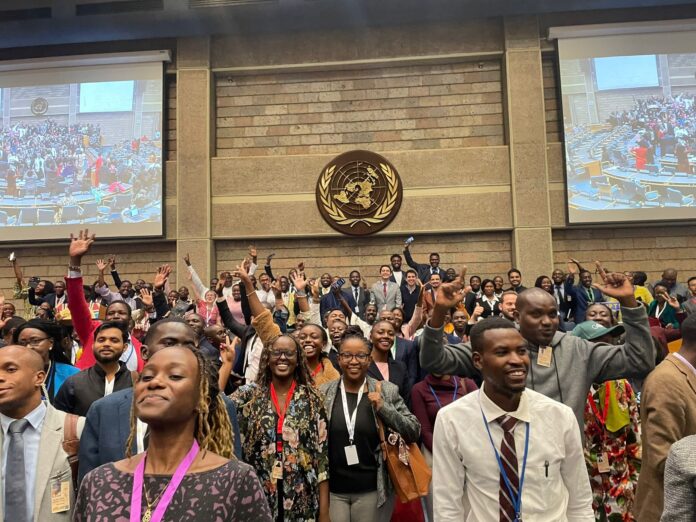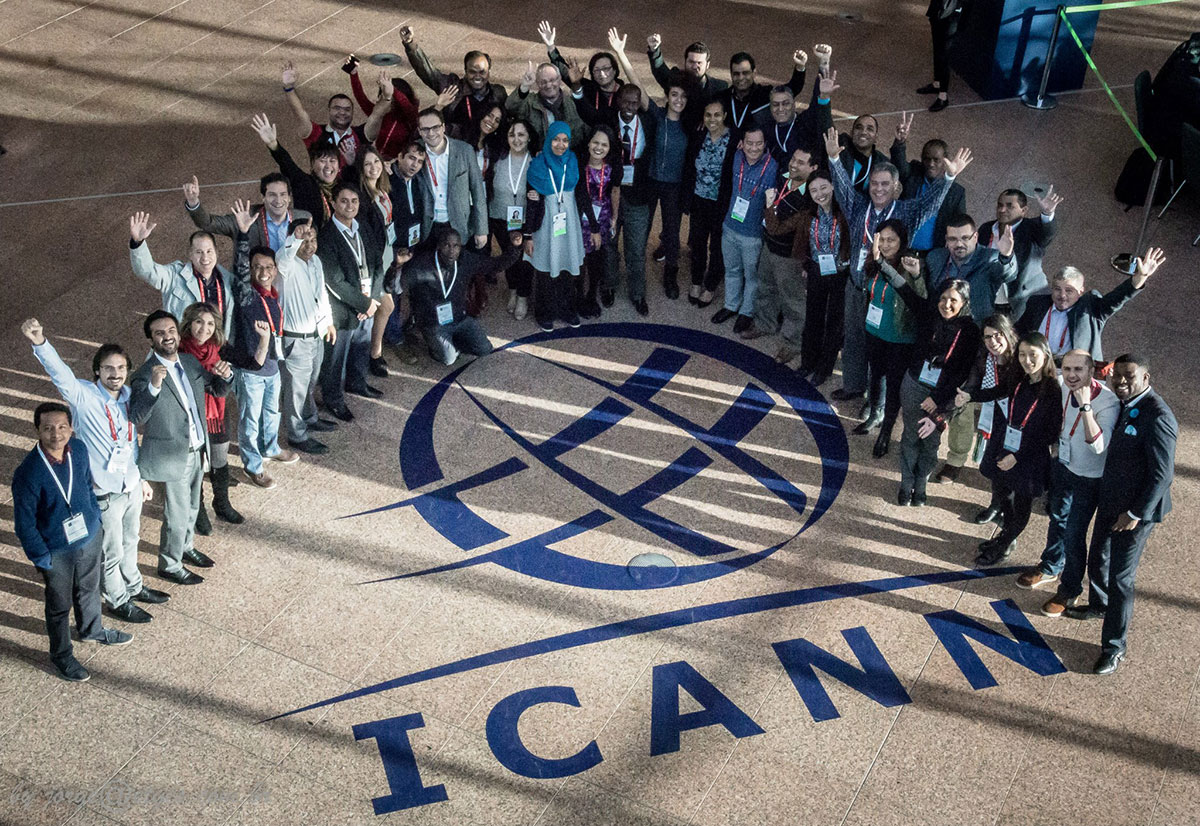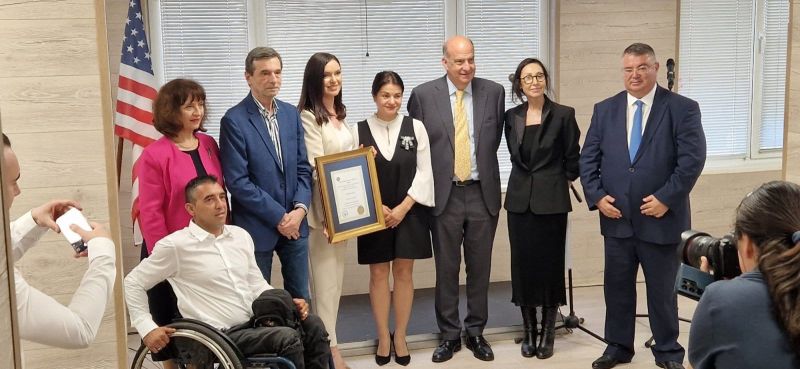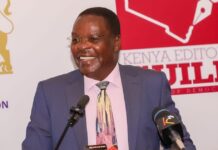
|
Getting your Trinity Audio player ready...
|
By Veni Markovski
New York, USA: During the course of the United Nations’ (U.N.) discussions of the Global Digital Compact (GDC), the Internet Corporation for Assigned Names and Numbers (ICANN) has provided context and raised concerns when we believed it was necessary to highlight the unique and critical role of the technical community in the multi-stakeholder model of Internet governance.
For more than a year, the co-facilitators of the GDC have organized public consultations to discuss the topics included in the GDC. With the publication of the GDC Zero Draft, it was clear that the voices of the technical community and ICANN were heard. Three items of importance were specifically addressed: The GDC chose not to establish a multilateral Digital Cooperation Forum, the technical community was recognized as a separate stakeholder, and support for the Internet Governance Forum (IGF) was expressed.
On 12 July, the co-facilitators published under silence procedure the text of the GDC, revision 3 (rev.3). The silence procedure could be broken by Tuesday, July 16, at 15:00 New York time (Eastern Daylight Time). If it is not broken, that means that all U.N. member states are satisfied with the text in its entirety. If a member state is not satisfied with a concrete text, it could “break the silence,” and there will be more negotiations about that particular text.

Through ICANN’s World Summit on the Information Society: 20-Year Review (WSIS+20) Outreach Network, we held webinars after the publication of each version of the GDC (Zero Draft, rev.1, rev.2, and rev.3) to discuss the content of interest to the ICANN community.
Experts with knowledge about the U.N. processes and the text of the GDC joined and shared their observations with the participants. We offered these forums with the intention and belief that a candid exchange of information would help our community to better understand the U.N. processes, and to identify and respond to portions of the text that have the potential to impact ICANN’s mission or the multistakeholder model of Internet governance.
The views exchanged in these webinars have high value, as they helped everyone to better understand the issues, and provided the needed information for interested parties to contact their governments and alert them to the importance of the negotiations happening at the U.N. The webinars also aided ICANN’s Government and Intergovernmental Organization Engagement Team members in their conversations with the diplomats from the permanent missions to the United Nations in New York.
Beginning with the Zero Draft version, the GDC has included a chapter called “Internet Governance.” The text in that chapter has gone through some changes. In the WSIS+20 Outreach Network mailing list, we have circulated a PDF comparing the different versions. Below is an explanation of what the language in rev.3 means.
Paragraph 26: “We recognize that the Internet is a critical global facility for inclusive and equitable digital transformation. To fully benefit all, it must be open, global, interoperable, stable and secure.”
Context: This second sentence is key; it explains that the Internet must be open, global, interoperable, stable, and secure. These characteristics provide the minimum (of course, there are many more) requirements needed for the operations of the Internet as we know it.
Paragraph 27: We recognize that Internet governance must remain global in nature, with the full involvement of governments, the private sector, civil society, international organizations, technical and academic communities, and all other relevant stakeholders in accordance with their respective roles and responsibilities. We reaffirm the role of the Internet Governance Forum (IGF) as the primary multi stakeholder platform for discussion of Internet governance issues.
Context: Rev.3 uses the term “Internet governance.” Rev.2 uses the term “governance of the Internet.” Using well-established terms shows consistency and an understanding that there’s no need to create new terms or replace existing, established terms. Rev.3 also recognizes that Internet governance is happening with the full involvement of all stakeholders. Further, rev.3 reaffirms the role of the IGF, which shows clear understanding among the U.N. member states about its importance.

Paragraph 28: We commit to:
(a) Promote an open, global, interoperable and reliable Internet and take concrete steps to maintain a safe, secure and enabling online environment for all (SDG 9);
(b) Uphold and support the IGF, including through the provision of voluntary funding, and continue efforts to increase diverse participation from all stakeholders (SDG 9&10);
(c) Promote international cooperation among all stakeholders to prevent, identify and address risks of fragmentation of the Internet in a timely manner (SDG 16);
Context: The expressed commitment by the U.N. member states is important for the future development of the Internet, the participation at the IGF, and the efforts to prevent Internet fragmentation. Note that the U.N. Secretary-General Policy Brief published last year alleged that the Internet is already fragmented. It is good to see that the GDC is more precise in its language.
Overall, this section of the GDC rev.3 is an improvement over the previous versions. However, it missed the opportunity to use all the contributions submitted to the UN by many experts and organizations; nevertheless it addresses some of the concerns expressed in our public sessions at the ICANN meetings, on the WSIS+20 Outreach Network mailing list and webinars, and in bilateral meetings.
We will continue to organize webinars regularly to discuss GDC and WSIS+20-related issues of importance for ICANN, ICANN’s Supporting Organizations and Advisory Committees, and ICANN’s broader community. It is exactly through such meetings and discussions, where we exchange knowledge and information, that we are able to be of help to each other as well as the diplomats at the United Nations to preserve the multi stakeholder model of Internet governance.
We expect to share more information in the coming days through the WSIS+20 Outreach Network. If you have not signed up for the mailing list but are interested in learning more, I encourage you to sign up to receive updates, notice of upcoming webinars, and more.
The author is VP, Government Engagement – UN NY and Interim Head of Government and IGO Engagement. The story was republished from ICANN.













